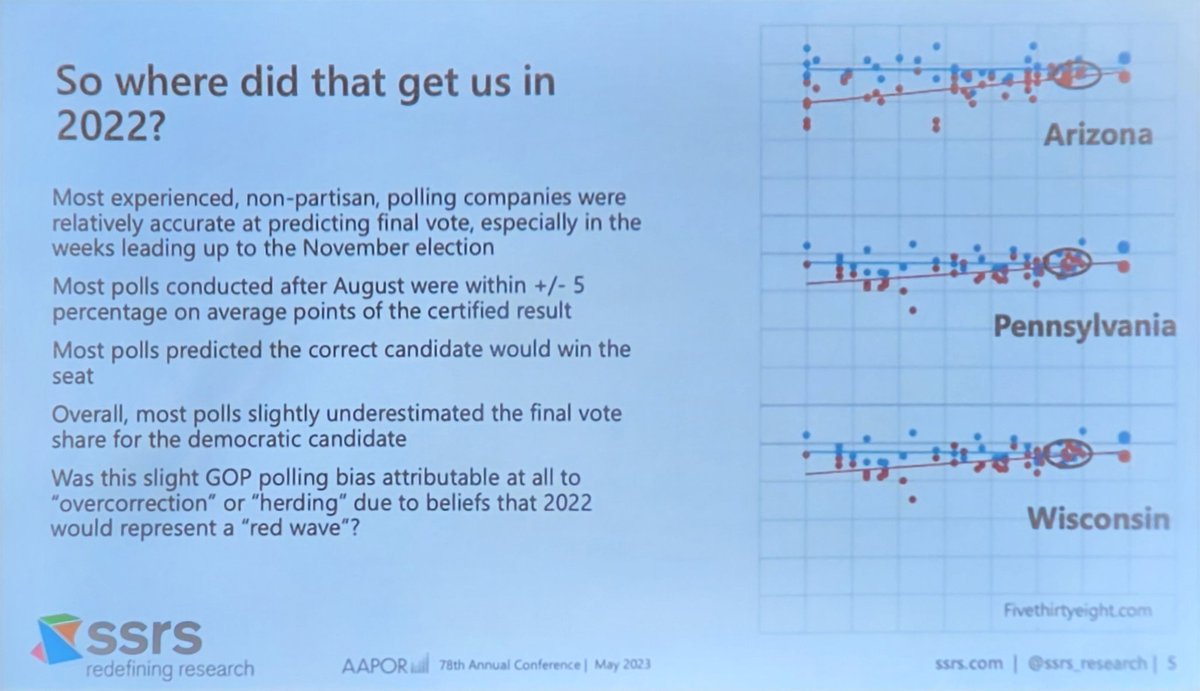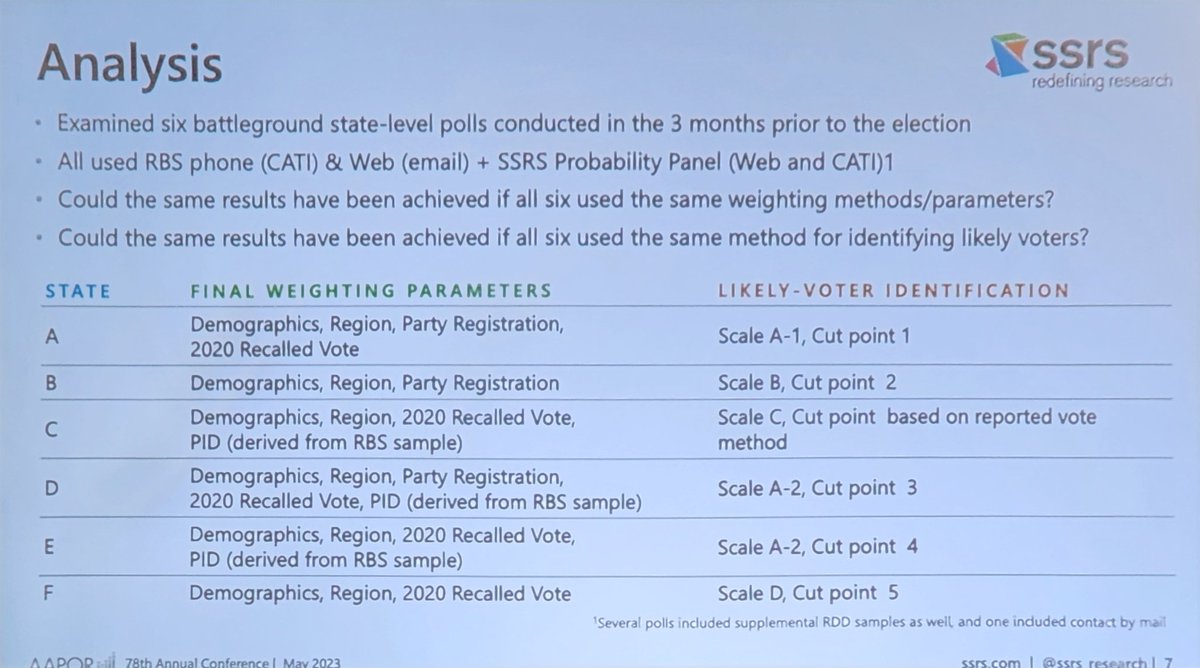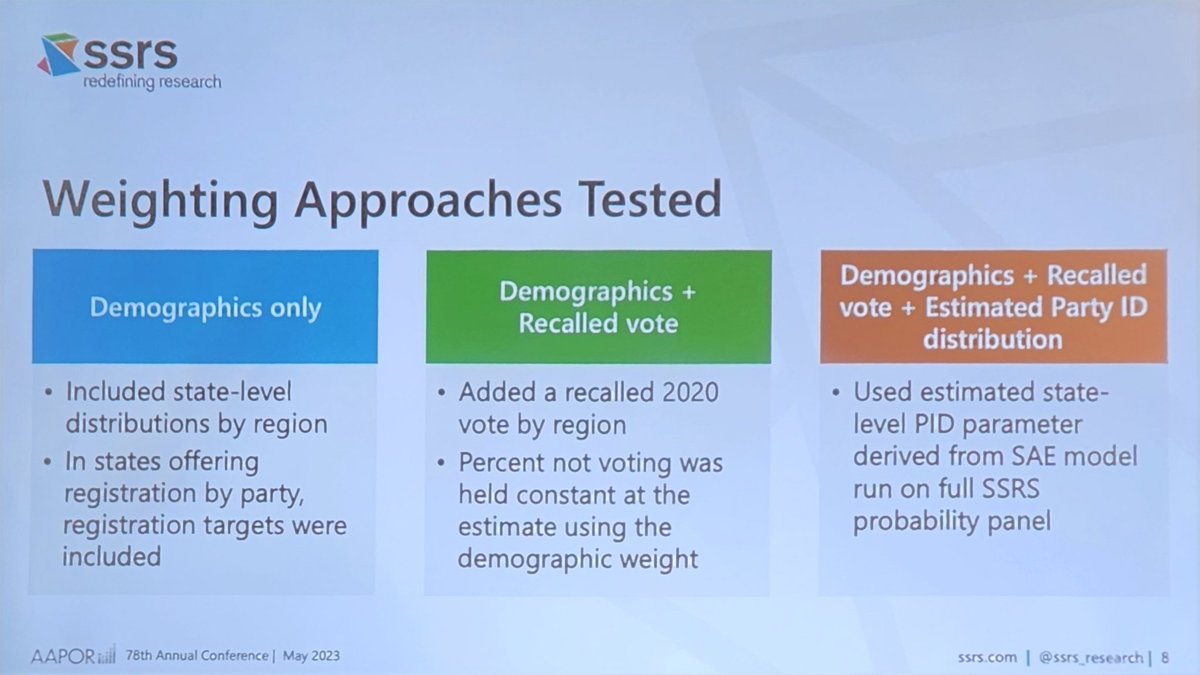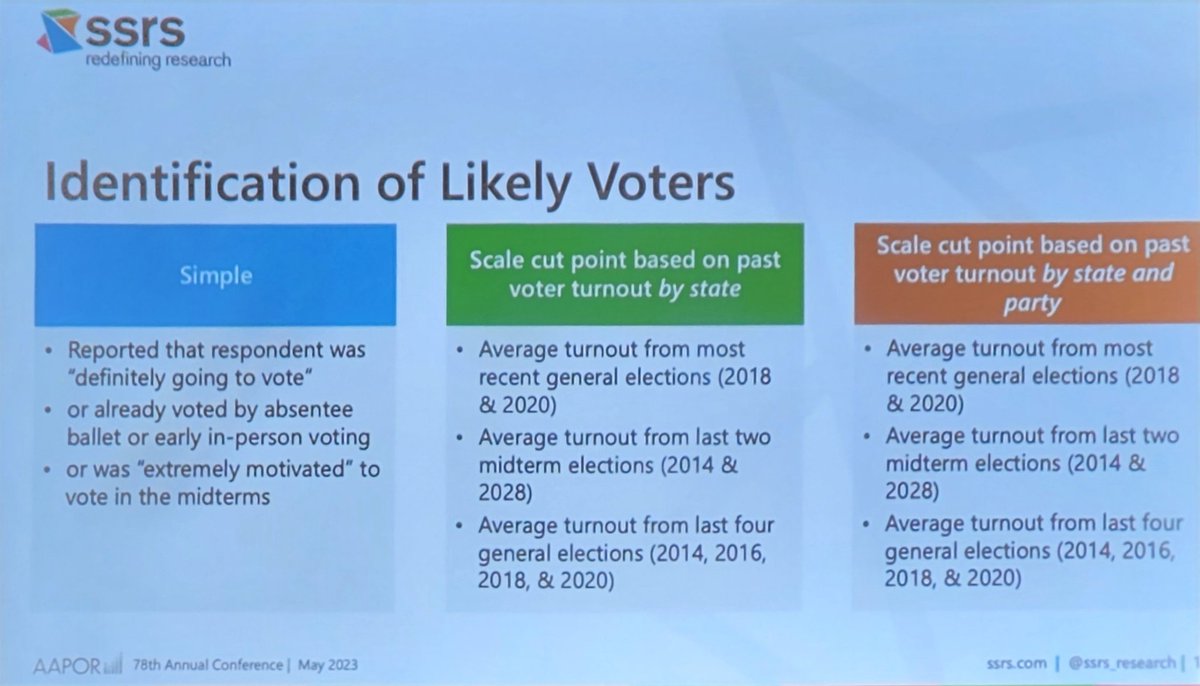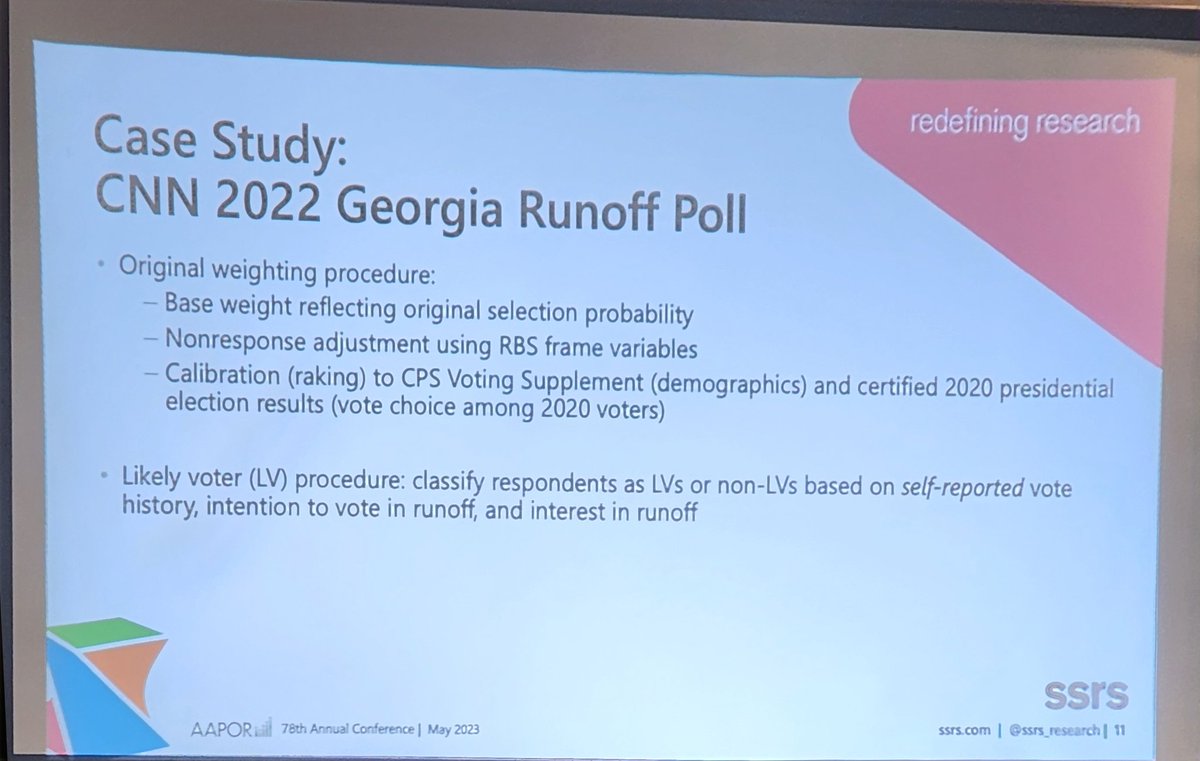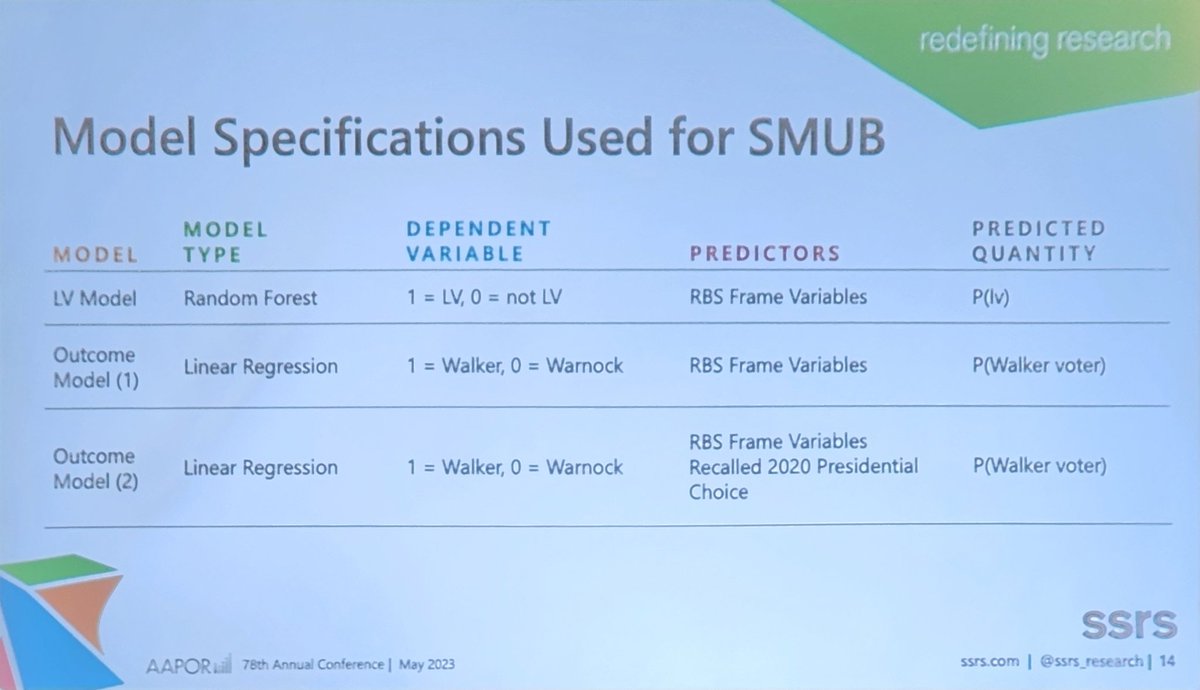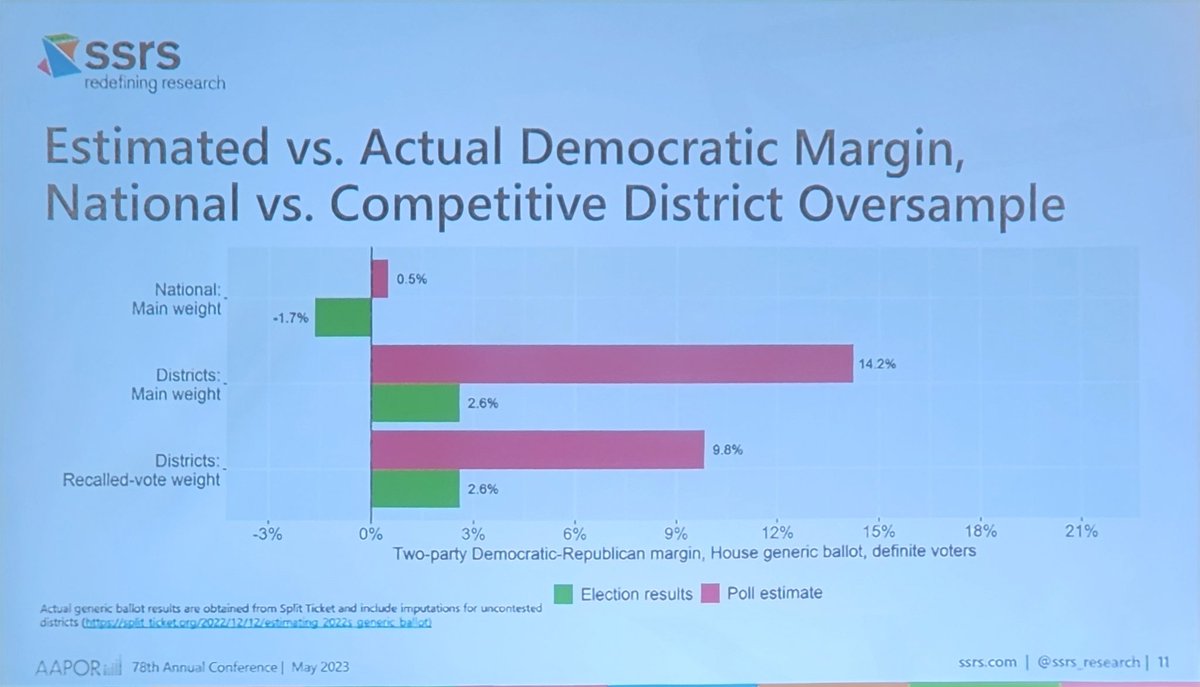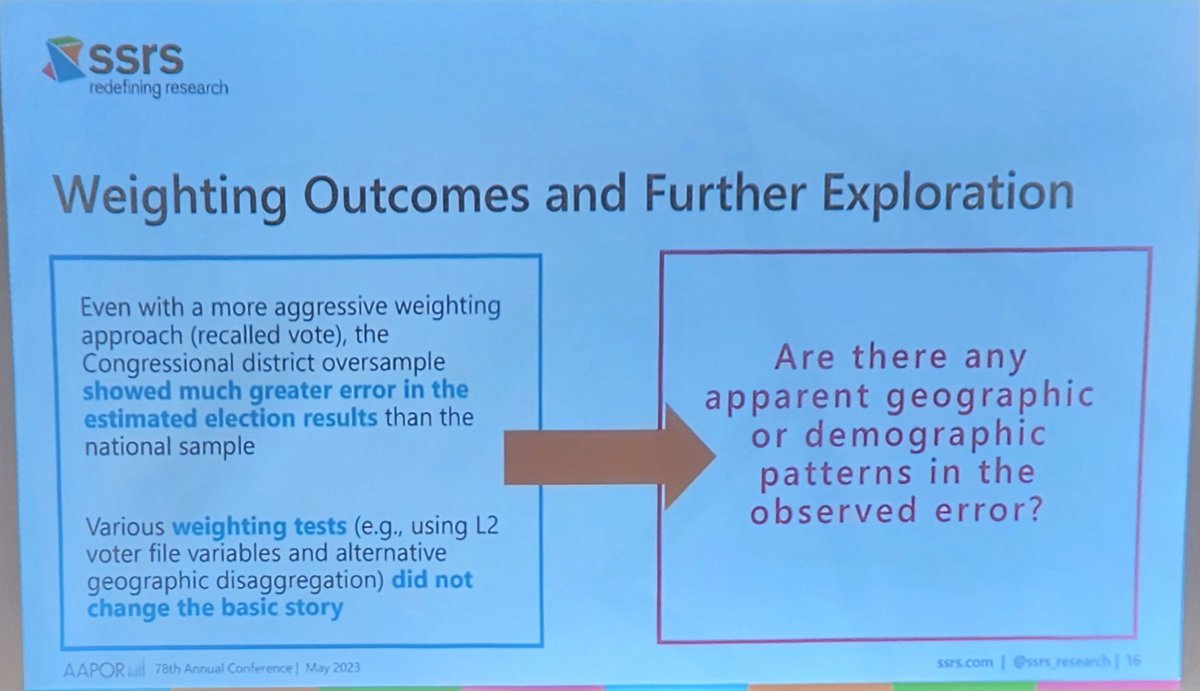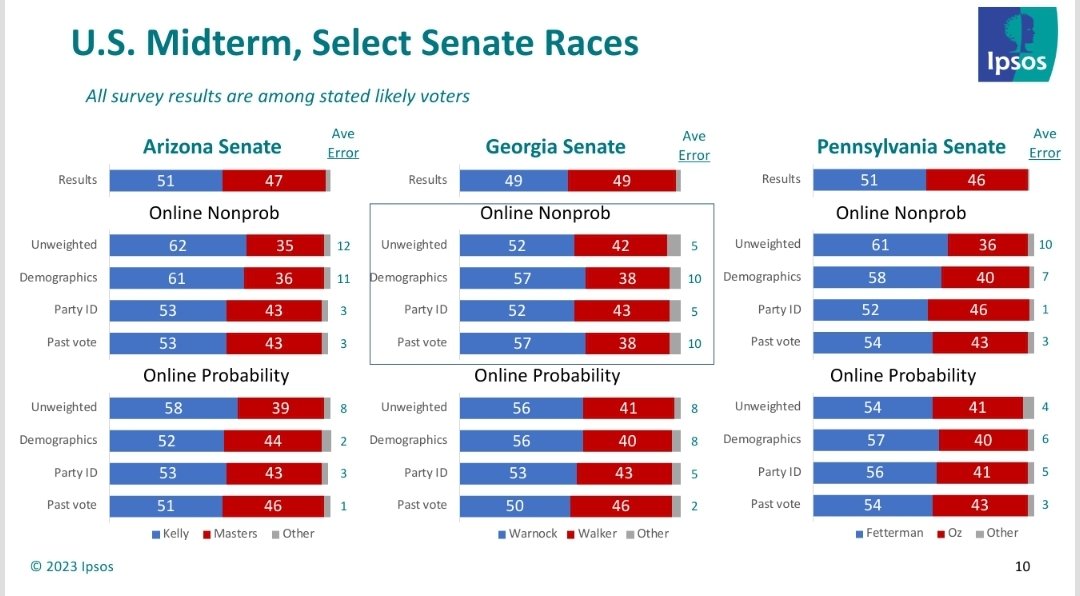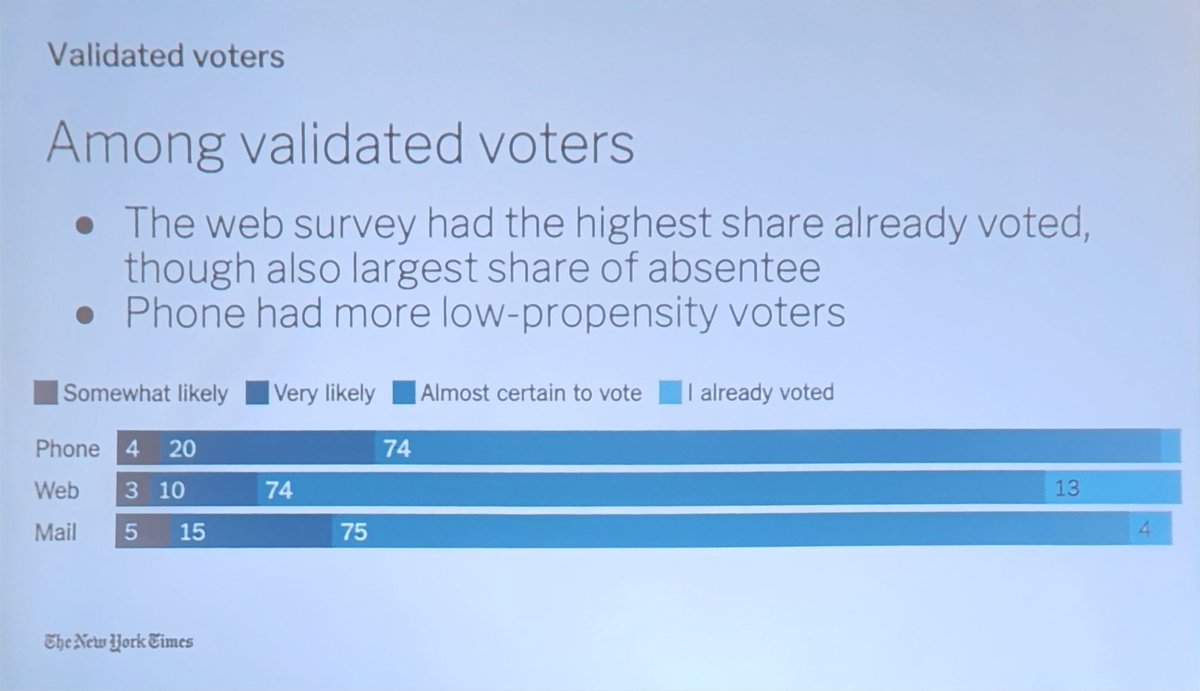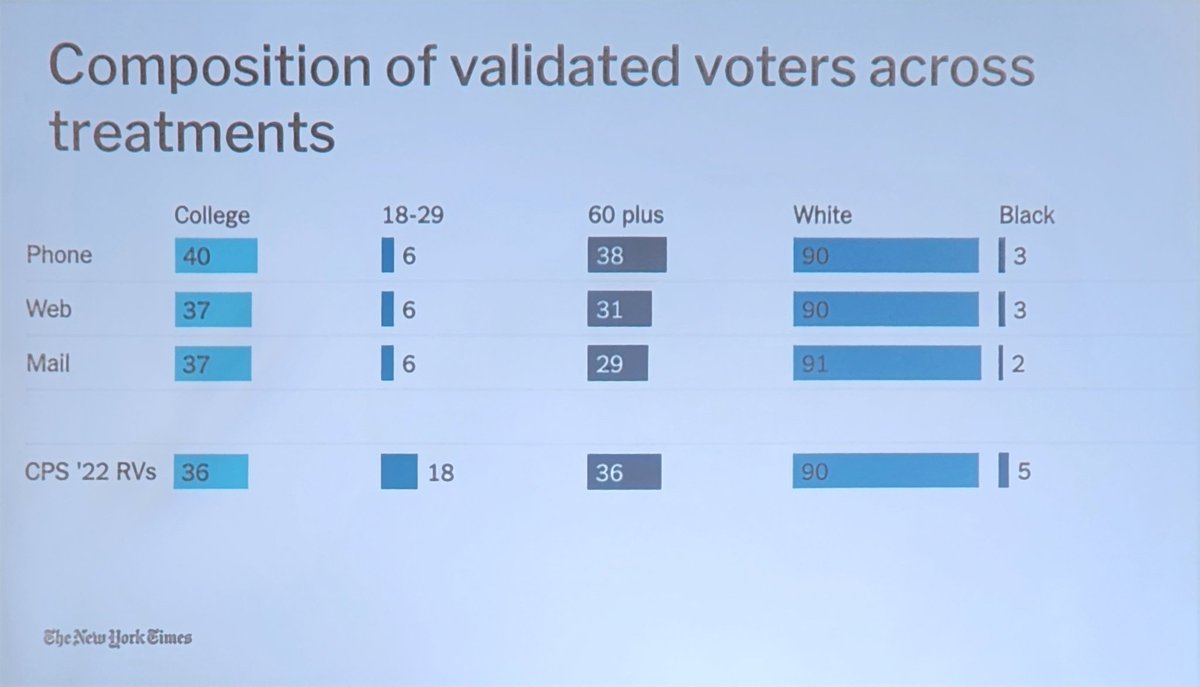Live tweeting the panel of Elections and Nonresponse now here at #AAPOR
First is Cameron McPhee (SSRS) presenting Underestimation or Overcorrection? an Evaluation of Weighting and Likely-Voter Identification in 2022 Pre-Election Polls 

Next is Mickey Jackson (SSRS) presenting Can New Metrics Help Us Get a Handle on Partisan Nonresponse Bias? Evidence from State-Level 2022 Polling 
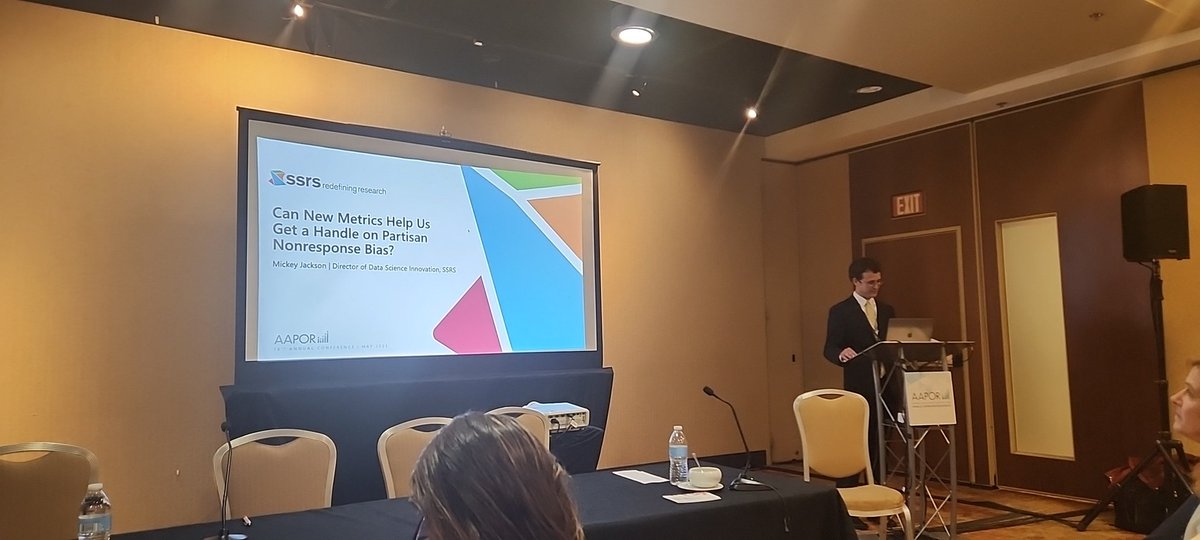
Why do we need new metrics?
Traditional nonresponse bias analysis assumes Missing at Random and are driven only by correlates observed in the sample. But what if nonresponse is non-ignorable after controlling for observable correlates?
Traditional nonresponse bias analysis assumes Missing at Random and are driven only by correlates observed in the sample. But what if nonresponse is non-ignorable after controlling for observable correlates?
Aa an alternative, they are using the SMUB metrics proposed by @Rodjlittle, @rrandridge, @bradytwest and others in Little et al (2020). Great to see that in use on election polling!
Conclusion: important to develop LV model and include recalled vote.
Next is Kristen Conrad (SSRS) presenting Investigating Partisan Non-Response Error in Subnatiobal Polls 

Research objectives:
Assess performance of new sampling, weighting and data collection methodologies
Assess performance of new sampling, weighting and data collection methodologies

Conclusion:
Accuracy varies by grography: national was pretty accurate, while subnational less accurate
Nonresponse bias was not overcome by weighting
Accuracy varies by grography: national was pretty accurate, while subnational less accurate
Nonresponse bias was not overcome by weighting
Next is my former and first boss @CliffAYoung (Ipsos Public Affairs) presenting Learning from the Past: Using Stated Past Vote to Correct for Nonresponse in Election Surveys, which I'm a co-author 

"Weighting by past vote is a brute force method to account coverage, nonresponse bias, likely voter problems"
RQ: how effective is weighting by past vote?
Presenting data from US midterms 2022 and Brazilian Presidential elections 2022
No phone in the US results because forgot to include past vote in the questionnaire. "Always check your questionnaires, folks!" 😅
No phone in the US results because forgot to include past vote in the questionnaire. "Always check your questionnaires, folks!" 😅
Conclusion: weighting by past vote improves results (just in case you didn't get the message yet 😅)
Next is Ruth Igielnik (NYT) presenting Voter Validation across Modes: What a Nonresponse Study in Wisconsin Can Teach Us about Validated Turnout
Goals: test some theories of noresponse in WI varying by mode
ABS mail survey did a good job of not overrepresentibg politically engaged.
Phone still does a good job.
Across all modes, respondents were more Partisan affiliated than nonrespondents.
Phone still does a good job.
Across all modes, respondents were more Partisan affiliated than nonrespondents.
Last but not least is Courtney Kennedy (Pew Research Center) presents The Polling Landscape 2012-2022: Quantifying How Public Opinion Pollsters Adapted to Technology and Trump-Era Election Errors 

Results from the excellent article pewresearch.org/methods/2023/0…
Focus analysis on the sponsors of the polls rather than pollsters, since sponsors dictates important features of the design and decides whether the results will be made public or not
That's a wrap on this stellar session!
@threadreaderapp compile unroll thread
• • •
Missing some Tweet in this thread? You can try to
force a refresh

